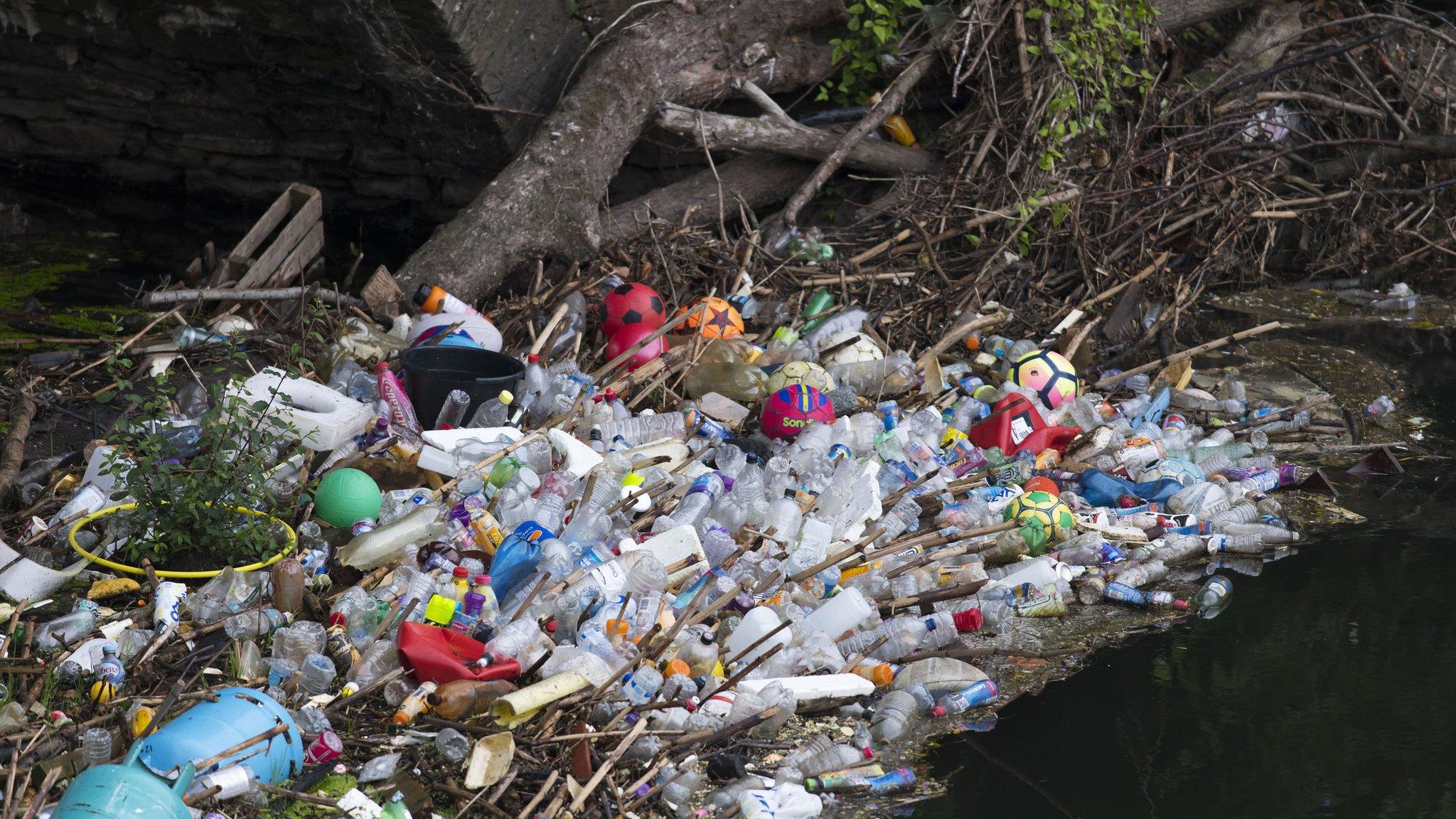Air pollution: New government stats show some pollution rises 'against the trend'
- Published
- comments
What's air pollution and why's it so important?
UK towns and cities experienced more days with 'moderate to higher' pollution levels last year than they did the year before, new statistics show.
The government releases data on air quality in the UK each year.
It looks at air pollution levels in urban areas like cities and towns, and rural areas - like the countryside.
The latest stats reveal that higher levels of air pollution in urban areas were recorded on more days in 2019 compared to 2018. Levels have been falling over the years, but the latest data "goes against the trend", the report said.
A pollutant called ozone is thought to be responsible for the higher levels of pollution recorded last year. It rises in hotter and sunnier weather, and this was the case last year, the report said.
"The government data shows that people in towns and cities experienced more days of high air pollution last year than the year before," said Chris Large of Global Action Plan, a charity behind a campaign called Clean Air Day.
"This is disappointing as it means air pollution is still at illegal levels. Traffic levels also continue to be a problem, and a growing concern is burning wood and coal in stoves in city homes." he added.
However, he believes the current lockdown has had a positive impact on air pollution levels - a view backed up by recent studies.
For rural areas, there were fewer days with higher levels of air pollution recorded in 2019 compared to the previous year.
What is air pollution?
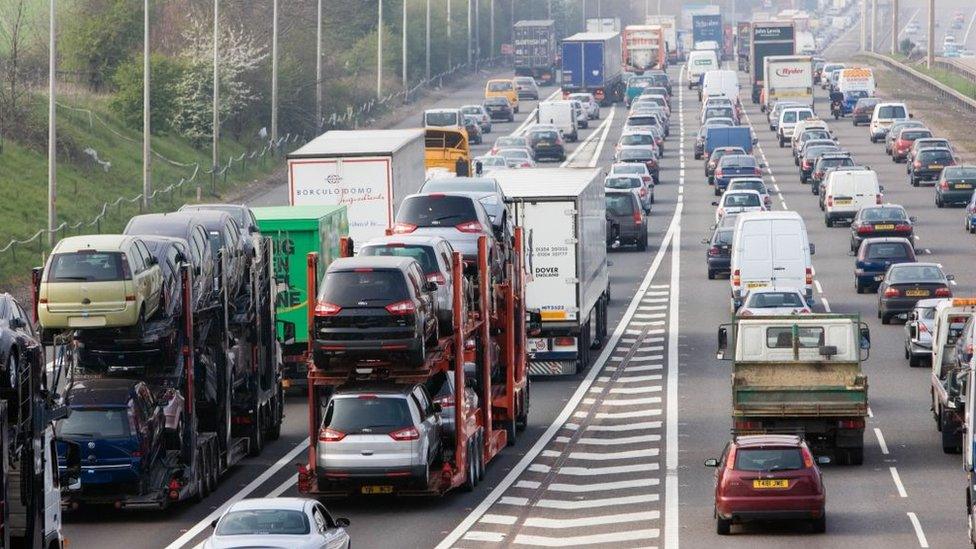
The fumes given off by vehicles affect air quality
Air pollution is a term that describes the harmful gases and particles in the air. We can't always see these substances as many are invisible to the human eye, but they affect the quality of the air around us and this can be very damaging to both human health and the environment.
Vehicles including cars, buses, trucks and motorcycles all emit air pollutants. They can also be given off by planes and trains and at factories and power plants where fossil fuels like coal, oil and gas are burned.
Cigarette smoke, the burning of wood for heating and cooking, and farming all contribute to air pollution too.
Common air pollutants include:
sulphur dioxide
nitrogen dioxide
carbon monoxide
ozone
Why does it matter?
One boy and his dog, Baggy, take on pollution
Air pollution is a really important issue because it can have very harmful consequences when it comes to human life. Vehicles on the roads are the primary source of pollution in towns and cities, and many people end up breathing in these harmful gases.
Pollutants can end up in a person's lungs and even in their bloodstream which is dangerous.
Those with heart or lung conditions like asthma, and the elderly are particularly at risk. Children can also be affected if they're exposed to very high levels outside of places like school, for example.
Every chance you have to skip a plane flight, walk or bike instead of take a car, or eat plants instead of animals makes a big difference for the climate.

Air pollution is a particular concern when it comes to those with conditions like asthma
Air pollution isn't only bad news for human health, but it also poses a threat to the environment. Harmful gases and particles can damage land and crops and they can also end up in bodies of water, putting animals, plants and whole ecosystems at risk.
Pollutants like carbon and methane also contribute to climate change.
What's being done to tackle it?
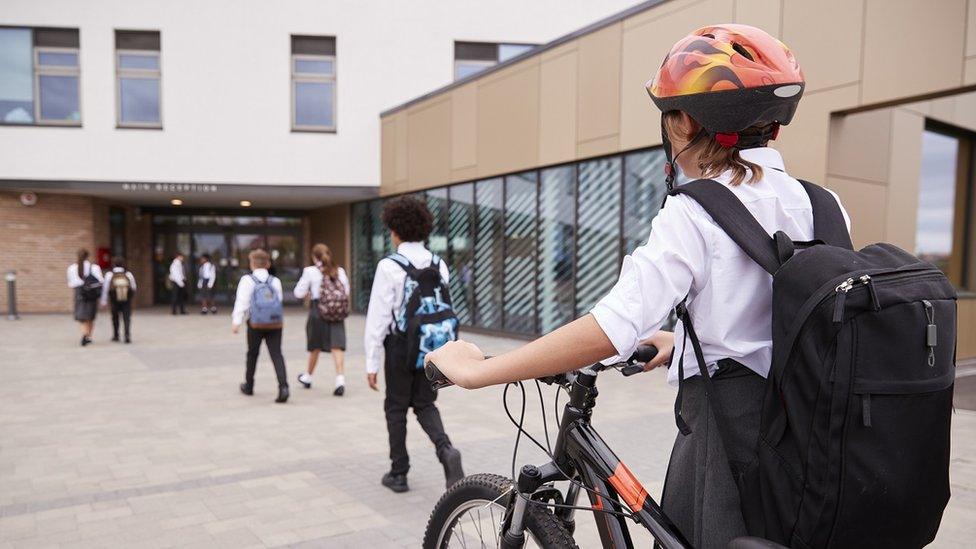
Organisations like Clean Air Greater Manchester encourage children to cycle to school to help reduce air pollution levels
Some steps have been taken to reduce levels of air pollution in the UK. Last year, The Department for Environment, Food and Rural Affairs - which is part of the government - introduced its Clean Air Strategy with the aim of improving air quality and saving lives.
Global Action Plan is the charity behind Clean Air Day which aims to educate people about air pollution. Here are some top tips from the charity on how you can help reduce air pollution.
1. Give your car a holiday - ask your parents or carers to leave the car at home and walk, scoot, cycle or take public transport when you can.
2. Discover the side streets - use quieter streets when you're walking or cycling to avoid polluted main roads.
3. Don't idle the engine - if your family needs to drive, remind the driver to turn off the engine when the car isn't moving.
4. Go electric - electric vehicles are the future, and even now there are lots of ways you can travel electric. Ask your parents to try by hiring an electric car or taxi or test drive an electric vehicle.
5. Get involved with Clean Air Day 2020 - Ask your school, friends and family to tackle air pollution on Clean Air Day on 8 October.
Some of the measures in the government's strategy include the introduction of laws to stop the sale of the most polluting fuels and the education of people and businesses on what they can do to help reduce levels of air pollution.
There are also many organisations and campaigns taking action to reduce air pollution levels in the UK like Clean Air Greater Manchester, Healthy Air, the British Lung Foundation and Friends of the Earth.
What impact has the pandemic had on air pollution in the UK?
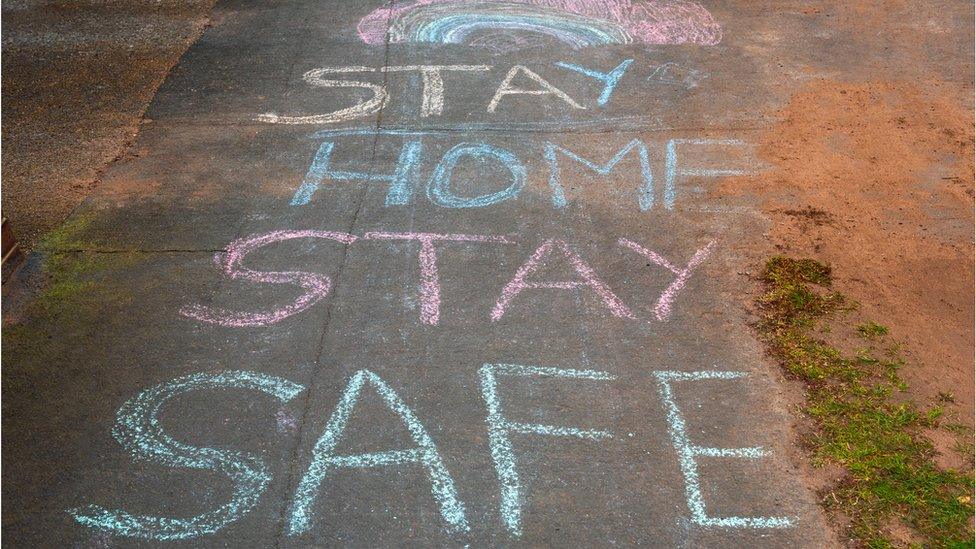
The UK is currently on lockdown
Lots of people have been staying indoors for the last few weeks to help limit the spread of the coronavirus.
Many adults are currently working from home, schools have temporarily shut and cities and towns are now quieter than ever before. People are travelling much less and lots of factories and businesses have shut up shop too.
This has had a significant impact on levels of air pollution not only in the UK, but all around the world. An organisation called the International Energy Agency says lockdowns will see global emissions fall by a record 8%,
An impact of that is much cleaner air, according to scientists at the Centre for Research on Energy and Clean Air.
"Right now under the global pandemic, climate pollution is lower because businesses are producing less and individuals are moving around less, so we are burning less fossil fuels," said Professor Kimberly Nicholas who is a sustainability scientist at Lund University in Sweden.
She also believes that some of the more positive changes we've seen during the pandemic may be here to stay.

Will more people make use of technology for learning and working in the future?
Some environmental experts, though, fear the fall in carbon dioxide emissions could disappear once businesses start operating as normal again unless long-term changes are introduced.
"We need to very quickly stop building and using coal, oil, and gas and switch to clean energy sources that don't cause climate pollution, like wind and solar energy," says Professor Nicholas.
"Our research showed that the biggest personal changes to reduce climate pollution fast are to live flight, car, and meat-free."
- Published24 April 2019
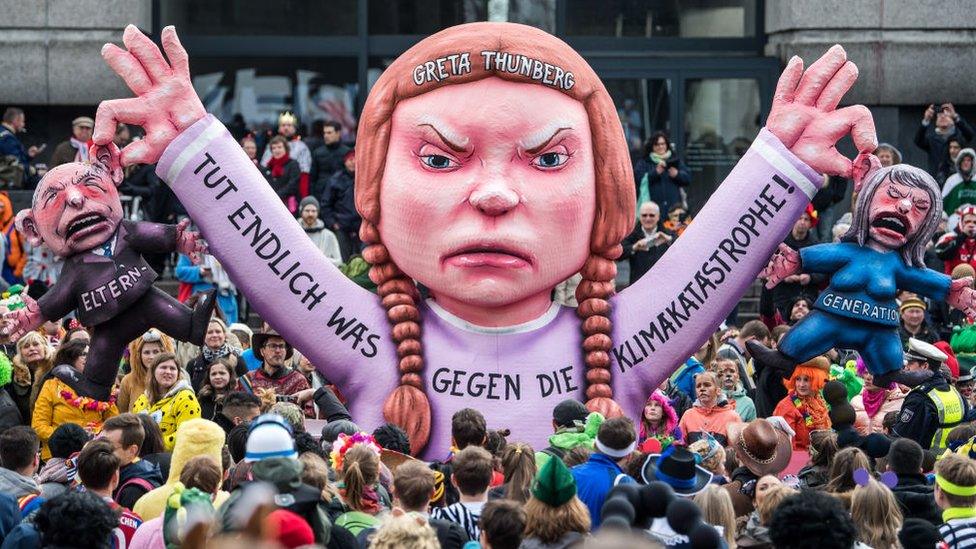
- Published14 March 2019
